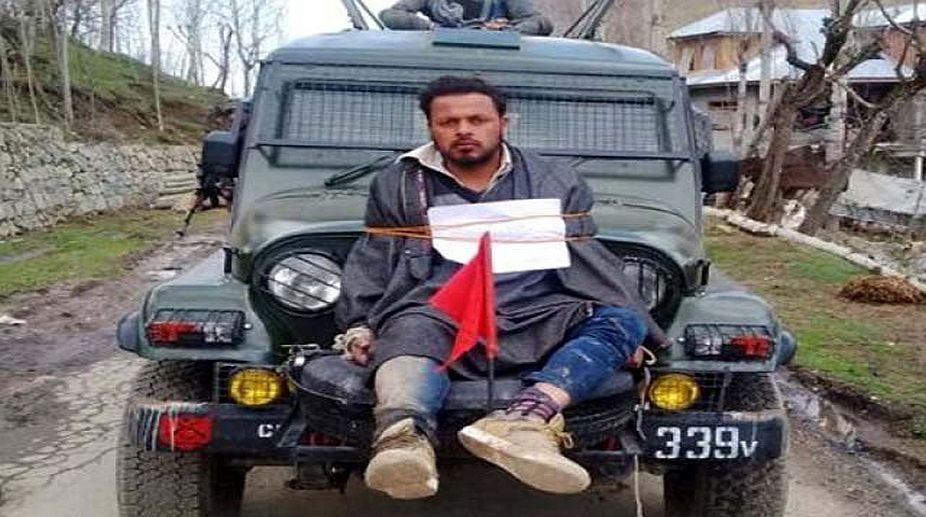In the lap of the mountains: Ishaan Khatter’s Kashmir pictures are an adventurer’s delight
Actor Ishaan Khatter, who was last seen in the period film ‘Pippa’, is currently enjoying his time in Kashmir.

Representational Image (TWITTER)
Acharitable view of another edition of intemperate comments from the Chief of the Army Staff would be that he is caught up in a selfactuated vicious circle of bellicosity ~ his warnings in February have proved counter-productive, stone-pelting mobs continue to hinder anti-militancy operations, the highly-controversial use of a human shield has projected the Army in pathetic light to the “outside” world, and his line that a dirty war has to be “fought dirty” will further corrode the respect and admiration the people once had for “olive-green”. The interview that General Bipin Rawat gave to a national news agency ~ his words were monitored internationally ~ points to the adversary having met with considerable success in dividing public opinion on the role the troops are playing in Kashmir. The fall-out could be more damaging than what even schoolgirls are now hurling at the forces. More powerful than the Army’s weaponry is the backing of the nation, a backing slowly getting reduced to only the “uniforms” and those subscribing to a specific school of political philosophy. That is the difference between today’s “dirty war” and the conflicts in.1947-48, 1965, 1971 and Kargil.
It would be difficult to pick out which of Gen. Rawat’s comments would be most offensive to liberal, civilised society. He is certainly right in calling for “innovation”, but does he mean more “human shields”, honouring men facing charges of violating human rights, and clubbing alienated people with the Pakistan forces? Those are dangerous propositions, and fly in the face of the track-record of the men he is now privileged to lead ~ in 1972 many Pakistani soldiers taken Prisoner-of-War in what became Bangladesh lauded the Indian military leadership under Sam Manekshaw. Pakistan had waged a dirty war then too, the Indian forces had made concerted efforts to keep their hands clean. That exemplified generalship of pristine standards. Wonder if Sam, or Cariappa, would have lauded a Major Gogoi? Did it fall within the General’s remit to be sarcastic and point out that “Kargil” was the fruit of efforts to promote peace with Pakistan? Come on Chief, you have crossed the line. He insults the memory of Lt. Umar Fayaz when speaking of his killing and that of Burhan Wani’s in the same breath.
Advertisement
It is not difficult to understand the eruption of the General’s frustration. All the chest-thumping accolades from the ruling party only accentuate a partisan position on a national issue. In the absence of political/diplomatic action from the Centre, and a state government totally out of its depths, the Army is being asked to single-handedly fight a war it knows it cannot win on its own. Alas, both the General’s words and the political rhetoric will only see the Army losing its high moral authority of yesteryear.
Advertisement
Advertisement